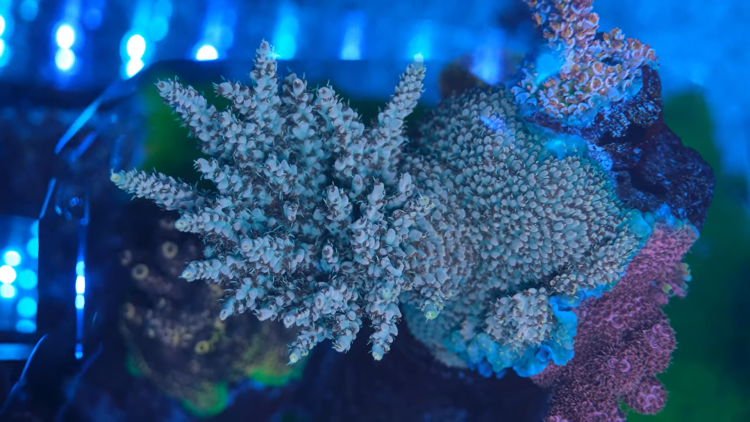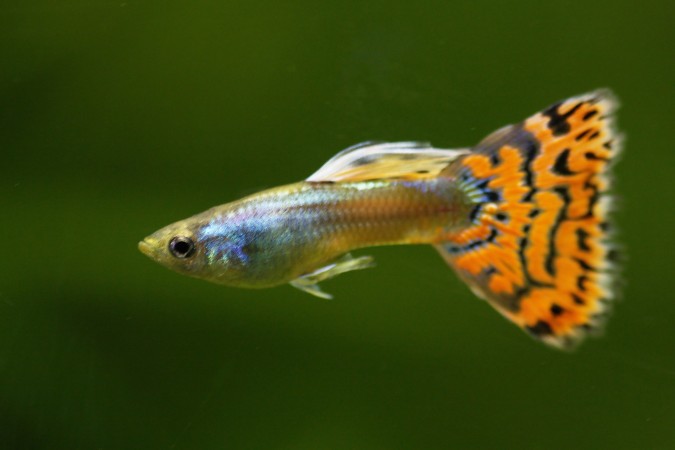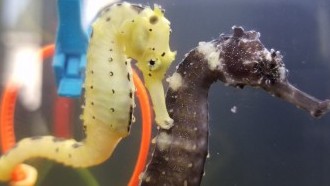7 Mistakes Every Reef keeper Makes
- Feb 17, 2023
- Anshika Mishra
- 231 0 0

Every saltwater aquarist makes a few mistakes, many when you are new to the hobby. But there are also a few that crop up repeatedly without you even realizing it. So, here we are going over the top seven mistakes that every reef keepers make.
1. Thinking all shrimps are good
The Scarlet Skunk is an absolute hobby icon and is one of the first animals you're likely to buy when you set up your new saltwater aquarium. The good news is that they are peaceful and reef safe.
The bad news is that the same can't be said for many other shrimps in the hobby. Peppermint can be a great weapon against Aptasia and anemones, but they can also develop a taste for corals. Camer shrimps are even worse because they look cool but are most likely to gobble down your LPS corals.
Boxer shrimps can even be more docile towards other shrimps in the hobby. Most shrimps look innocent and harmless to the uninitiated, which is why this mistake traps many of us.
2. Aiming flow straight to corals
Flow in a reef tank is one of the most important things to get right, and you'll often see that many corals, especially SPS corals, require strong flow. But finding a consensus recommendation on where to place your powerheads is much more complicated than you think.
Many powerheads point straight ahead and can't be angled up or down. Unfortunately, in a nano tank here, you don't have many options for powerheads; it's easy to end up blasting a coral within an inch of its life.
Putting even a flow-loving powerhead will likely lead to it receding or dying.
3. Too much light
Corals rely on photosynthesis for the overwhelming majority of their nutritional needs. So you'd be forgiven for thinking that if a little is good, more much be better. When you first turn your new LED lights on, your tank will look better and brighter you turn your lights on.
But the reality is that even the most light-hungry corals like Aquapora don't need as much light as you think.
You'd be amazed at how dim you can run your lights while still growing corals, and it's only the bright lights that seem so appealing to us that do the damage.
So the next time you think your coral might be suffering from lack of light, ask yourself if it could be getting too much light.
4. Too much filtration
The next mistake every reef keeper makes is buying too much filtration equipment. With live rocks from the oceans becoming less and less popular, modern reef tanks have become more and more sterile.
It's easy to look at the sump of your ideal reefer and think that you must cramp it full of filtration. But when you look closer, you might realize how little filtration is in the sump. A sterile tank will he a hist risk for hard-to-beat pests than a tank with high nitrate and phosphate.
Plus, you'll have more success with no filtration for the first few months than with too much filtration.
5. Overfeeding
Feeding fish is the most fun part of the hobby, and you can't even train some fish to eat out of your hand. But while you don't want your nitrate and phosphates levels bottoming out to zero, adding too much food, whether for fish or coral, is a recipe for algae.
It's also very quickly done, as no single answer will help you find the perfect amount to feed your tank. It depends on how many fishes you have, what size they are, how many corals you have, your filtration, and many other factors.
And the main reason why so many of us overfeed is false test results. For example, if you have a tank riddled with algae, that algae will soak up most or all of the excess nutrients in the water, so your test results will tell you that your nutrients are too low, at which point you'll increase feeding, which will only make the problem worse.
Saltwater aquariums can sometimes be a confusing hobby, and this is a classic example.
6. Overthinking
We often look for complicated answers to a simple problems. For example, the first question you ask when your corals look sad is, I wonder if it's my lights.
The secret behind the success of the top reefers isn't because they have tuned the whole perfect spectrum into their lights. It's not because they have mastered their trace elements. It's because they focus all their energy on the basics.
Adding sufficient flow, using good quality source water, testing salinity nitrate, and above all else, leaving the tank well alone.
A considerable section of reef problems can be fixed by checking in on the basics and leaving the tank to settle for a month before making any changes.
But sometimes, the desire to fix a problem just by adding something from a bottle is too tempting to result.
7. Buying fish without researching
The worst culprit for these are cute little fishes that look like they couldn't;t fight their way out of a wet bag, only to be an absolute nightmare. Or tiny juveniles that don't look like they grow more than a couple of inches at most turn out to be tank-bursting monsters growing up to a foot long.






About author